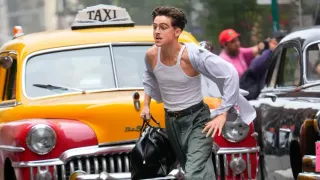December 9, 2017
First Openly Lesbian NBA Referee to Get Award
Ryan Lynch READ TIME: 1 MIN.
Violet Palmer, the first female referee in NBA history, will be awarded for her contributions as being an out women of color.
She will receive a Truth Award on Feb. 24, 2018 from the Better Brothers Los Angeles and the DIVA Foundation according to Outsports. The event will honor men and women "whose personal and professional accomplishments have positively impacted the perception and image of the Black LGBTQ community."
"Violet Palmer is a real game changer," actress and DIVA Foundation Founder Sheryl Lee Ralph said in a statement. "As a woman, she shattered the glass ceiling in the world of professional sports while living out her truth as a gay woman. By making historic gains in the NBA, Violet scored big wins for gender equality and LGBT rights for the next generation of women coming behind her."
Palmer started with the NBA in 1997 and officiated 939 regular season and nine playoff games. She came out to the public in 2014 during an interview with the Associated Press, according to Outsports.
Currently, Palmer is retired from the NBA and works as the coordinator of women's officials for the PAC-12 Conference, the West Coast Conference and the Western Athletic Conference.
 Copyright South Florida Gay News. For more articles, visit
Copyright South Florida Gay News. For more articles, visit 





